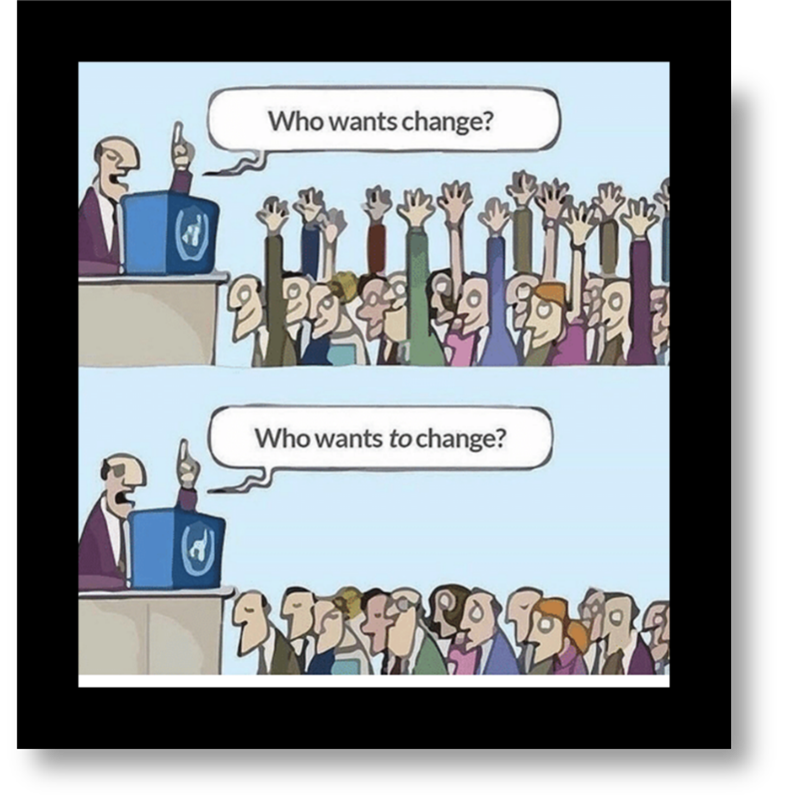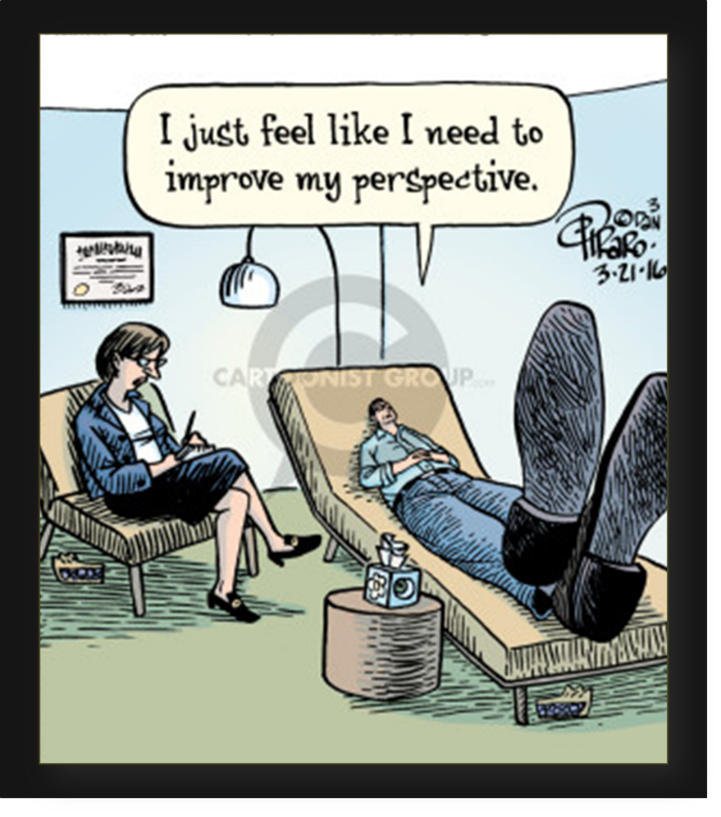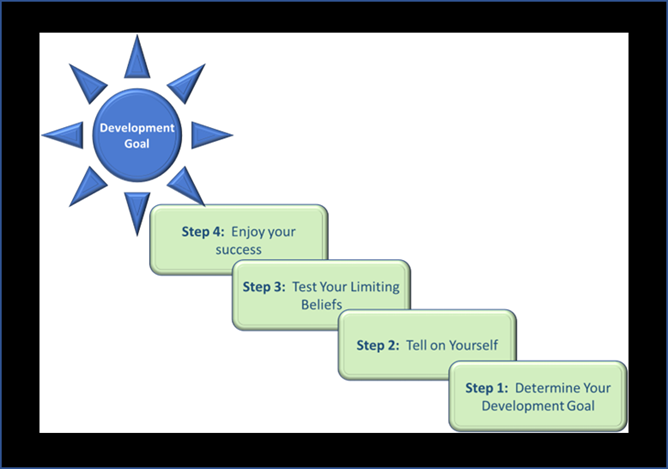Leaders too often see major challenges as technical problems, when they are actually adaptive challenges, requiring personal adaptive change, sometimes followed by technical skills. In my view this is the biggest barrier to effective leadership. (adapted from Ron Heifetz, Leadership Without Easy Answers)
The above adaptation of a Ron Heifetz statement is one of the most important insights I have received as an executive development consultant helping senior managers lead change in their personal behaviour and their organizations.
As the cartoon points out, we all want change, but nobody wants to have to change themselves. We want to focus the change effort out there, and not in here.
As consultants, we have been overly focused on skills training when the client asks us for our help with organizational change. We have been purveyors of new tools for the management toolbox. The more updated tools in your box, the better you will be. Our focus has been on adding to what is already there. We typically think of personal development as getting more or better.
Through experience, I now see that real change comes more from subtraction than addition. It comes from mindset change, not from skillset addition. This requires a change in perspective or a different lens to view the situation through. We have an internal operating system (genetic predispositions, socially conditioned biases, habits, beliefs) that prevents us from seeing the situation clearly. Updating our operating system, often requires the process of subtraction, or a letting go of parts of us that bias us toward a distorted view of what is happening. As Heifetz says in the above quotation, we need to personally change (mindset) as a starting point for leading change in others.
We need to “subtract” some of our old habits, basic assumptions and limiting beliefs that maintain a fixed mindset rather than a growth mindset. Teaching executives delegation skills, when they have a reputation for not delegating effectively, is mostly a waste of time. In most cases, once they have the delegation skills, they wont delegate anyway. Therefore, so much of management training doesn’t deliver the changes wanted in behaviour. I have found it much more useful to show executives why they wont delegate even if they had the skills to do so. My focus has become helping leaders both see and then release (subtract) the internal foot on the brake.
How is this Done
- Determine the one developmental goal (what I call The One Big Thing) that will make the biggest difference in your leadership. If I can get this right, many of my other challenges will become trivial or go away all together.
- e.g.
- I need to delegate more effectively
- I need to stay focused on key priorities
- e.g.
- Tell on yourself. Write down all….
- The behaviours that you do or don’t do that undermine your One Big Thing (above)
- e.g. I do stuff myself that others could be doing
- The uncomfortable opposite behaviours that would support your One Big Thing.
- e.g. coach and trust a team member to take over a task that I would have done before
- Your concerns and worries if you were to do those uncomfortable opposite behaviours
- e.g. the task wont get done properly
- Your self-protective strategies (unconscious rules) that keep you safe from worrying or being concerned.
- e.g. NEVER risk something being done imperfectly.
- Your Limiting Beliefs that support the above rules. Pick one or two of the most powerful limiting beliefs
- e.g. If something gets screwed up, then it will reflect poorly on my leadership.
- The behaviours that you do or don’t do that undermine your One Big Thing (above)
- Test those limiting beliefs in specific situations that require you to express your OBT. You will likely discover that your limiting beliefs were nowhere near as powerful or true as expected. Those beliefs and the limits they put on our behaviour, were useful to keep you safe at one point in your life. However, are they required today? Probably not.
- Enjoy your success with expressing your OBT now that you have released the brake, that was spinning you in circles.




